What is The Best Type of Water to Brew Coffee? Not What You Think!
I fondly think back to my early days in brewing, including mistakes that turned into lessons. I remember looking down on my daily brew, feeling that something was missing even though I followed the variables to a tee. Then it hit me: I wasn’t using the best type of water for coffee.
Water is as vital as it is overlooked in brewing coffee, and this may be the same for you, but not anymore.
Buckle up and let me enlighten you on everything you need to know about the water that goes into your cup of joe.
Water 101 in Coffee Brewing
From now on, don’t treat water as a minor ingredient in your coffee, thinking that it wouldn’t affect the taste of your cup of joe. Because it does, in a big way.
To get you started on getting to know water, here are some concepts you should take note of:
Total Dissolved Solids (TDS)
This term refers to the particles present in water, like minerals and salts. Measuring TDS helps determine water quality and how it might affect flavor.
Hardness-to-alkalinity ratio
Here, we consider the levels of minerals in the water, such as calcium and magnesium in relation to carbonate hardness or alkalinity. You’d want a balance between these elements if you’re aiming for a well-rounded and flavorful brew.
pH Level
When the hardness and alkalinity are balanced, you can also expect a stable pH Level, which determines the acidity of water.
When at an imbalance though, a high pH can result in bitter notes in your cup, while a lower pH will give you a weak drink. The sweet spot for your water’s pH level is around neutral 7 which can give you desirable results.
How Does Water Affect Your Cup of Coffee?
So how does the water affect your coffee’s flavors, when there’s so little taste in the water itself?
Water that has high mineral content such as your tap water, also called hard water, can hinder the proper extraction of your coffee grounds when the minerals overpower those delicate flavors packed within each bean.
In turn, you get a disappointing cup that usually tastes more bitter than it would otherwise.
Then comes soft water which has a lower calcium and magnesium content in it. Instead of overpowering your coffee beans, it actually enhances its aromas and nuances that can make up for a perfect coffee-drinking experience.
So if you have a bag of single-origin coffee ready for brewing, give them a proper future by making proper water choices. “But what are your choices anyway?” you might ask.
I’ll answer that in the next section.
Types of Water for Brewing Coffee
Now that you know how that water can make and break your coffee, let’s explore some popular types of water used for brewing.
Here’s a list and their typical pH levels:
| Type of Water | Typical pH Level |
|---|---|
| Tap water | 6 to 8.5 |
| Spring water | 6.5 to 8.5 |
| Purified water | 5 to 8 |
| Distilled water | 5.8 to 7 |
| Alkaline water | 8 to 10 |
| Soft water | 6 to 7 |
Tap Water
For many people, tap water is the go-to choice for making coffee. It’s convenient and accessible. Be wary though, because unfiltered tap water can contain impurities like chlorine or excessive minerals that can negatively impact the taste and aroma of the coffee.
During the barista training course I took, there was an eye-opening test, where we had to blind-taste coffee brewed with simple tap water vs the filtered water they used for coffee cuppings.
The results were so obvious: coffee brewed with tap water tasted way stronger and more bitter than the same coffee brewed with filtered water.
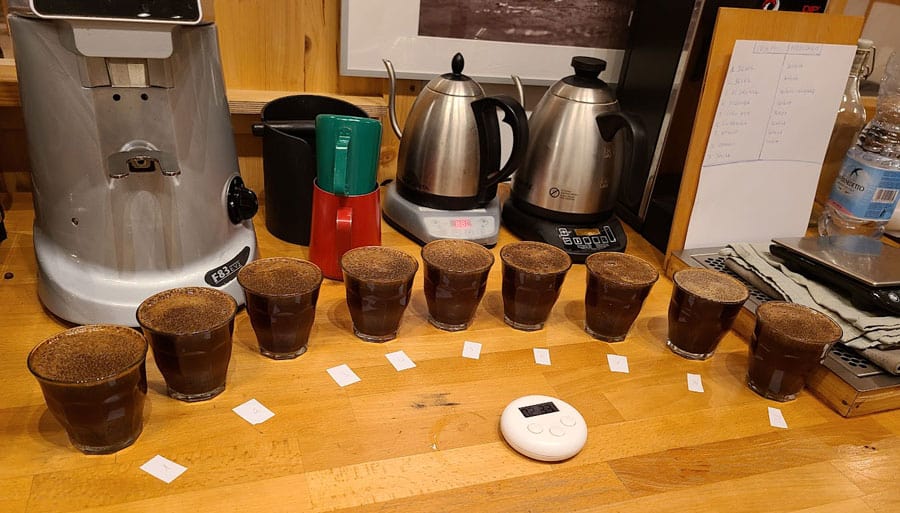
So if you’re using tap water, make sure it’s a high-quality one, or better yet, use a filter system like Brita so you can make easily make clean and flavorful brews.
Spring Water
Spring water is another favorite pick for many coffee enthusiasts due to its distinct taste drawn from the water’s mineral content. But it’s important that you use spring water with just the right balance of pH levels because opting for harder or softer water will not give you optimal results.
Distilled Water
Distilled water is made by heating regular water from the tap or other sources until they’ve evaporated into steam. When the steam condenses back into liquid form, you have 99% pure H20 molecules. While this pure water has its bacteria and other unwanted sediments removed, I don’t really recommend this for your cup of joe.
Not only can distilled water have negative effects on your brewing equipment that will ultimately lead to damage, but its lack of minerals will also leave you with a disappointing coffee that’s lackluster in flavor.
A workaround with distilled water is to use formulated mineral pouches from companies such as Third Wave Water. These pouches reintroduce the right amount of minerals in your distilled water to give it better extraction without limescale buildup.
Alkaline Water
When comparing it to your regular tap water, Alkaline has a higher pH level meaning it has more minerals like magnesium and calcium. While such a trait can make your coffee bitter, some coffee drinkers like using alkaline water because the minerals assist in bringing out your coffee beans’ flavors. I don’t like it though, but there is a level of personal preference here.
Purified (Filtered) Water – Soft Water
On the other end of the spectrum, opposite hard water, is soft water. It has a lower concentration of minerals, which gives it the power to accentuate your cup’s flavors without overpowering them. The result is a smoother and more balanced coffee drink.
Purified drinking water goes through filtration processes designed to remove impurities and contaminants. Among these unwanted coffee flavor disrupters are chlorine and heavy metals you’d find in your regular tap water.
Using purified drinking water ensures that you are starting with clean-tasting H2O which allows the flavors in your coffee beans to come forward without any interference from those unwanted substances.
I’ve been using this type of water in my coffee for years now. Installing a water purifier is fairly simple and cheap, and has a huge impact on the taste of your coffee.
And as an extra benefit, you’ll be able to drink great tasting, clean purified water from then on as well 🙂
Specialty Coffee Association Recommended Water “Recipe”
The SCA has published water standards that you can actually create at home from distilled water if you have the time. But is it worth your time at home? Probably not.
| Characteristic | Target | Acceptable Range |
|---|---|---|
| Odor 1 | Clean/Fresh, Odor free | |
| Color 2 | Clear color | |
| Total Chlorine | O mg/L | |
| TDS 3 | 150 mg/L | 75 – 250 mg/L |
| Calcium Hardness | 4 grains or 68 mg/L | 1-5 grains or 17 mg/L – 85 mg/L |
| Total Alkalinity | 40 mg/L | At or near 40 mg/L |
| pH | 7.0 | 6.5 – 7.5 |
| Sodium | 10 mg/L | At or near 10 mg/L |
So, what is the best water for brewing coffee?
A high-quality solo in line water filter is adequate for home use in my experience. It doesn’t remove Total Dissolved Solids which are beneficial for your health, such as potassium, calcium, sodium, and magnesium. It only stops impurities from feed water.
I find that in line filtered water achieves the perfect balance. Such filters do a lot for your water, removing the following materials with 96-100% efficiency:
- sediment such as rust, sand, mud, pollen
- chlorine, chloroform and other organochlorine compounds
- metals and heavy metals (e.g.: iron, lead, mercury, copper, aluminum)
- petrochemical compounds
- phenols
- the silver in filters that have them destroys bacteria and viruses
I use the Aquaphor Crystal Solo system at home with a 3-way faucet, but I live in Europe right now, and it’s not available in the States. This filter is similar though:
It’s easy to install as well:
Reverse osmosis is overkill, don’t let yourself be convinced it is not.
Water’s Effect On Coffee Makers
All this talk about picking the right water isn’t just about flavor, because you also need to consider the water’s effects on your coffee maker.
If you have a standard drip coffee maker, using filtered tap water is generally sufficient. As for that flavor-rich espresso, you should opt for soft water especially if your espresso machine is directly plumbed in. With this choice, your machine is safe from excessive limescale buildup and potential damage.
Go for bottled spring water or install a water filter or reverse osmosis water system. I have a simple water filter installed, which is great.
A step up is a reverse osmosis system, which is much more expensive and requires more space. This water filtration system involves combining filtered water with controlled amounts of tap or remineralized distilled water so you can have clean RO water that is safe on your machine without compromising on flavor.
Frequently Asked Questions (FAQs)
Here are the answers to some common queries about water for brewing coffee:
Yes, tap water is generally safe for drinking and coffee brewing in most parts of the world. But note that depending on your geographic location, it might contain varying levels of minerals or chlorine that could affect your coffee taste.
If you ask me, I’d say don’t boil your water (especially with espresso). This removes the oxygen in the water which reduces its ability for flavor extraction. Instead, I advise that you use freshly heated water just below the boiling point (around 195-205°F or 90-96°C) for the best coffee experience.
It really depends. Consider factors like the hardness of your water and the frequency of the machine’s usage. Try to do it every three to six months or follow the manual. If you see your machine’s limescale is building up fast, switch to filtered or soft water.
There are different ways to clean your water filter. Common cleaning agents you can use are distilled white vinegar or bleach such as oxalic acid mixed with water. Be sure to check the instructions on your specific water filtration system so you’ll know the recommended method for cleaning it.
My Final Thoughts
Water is truly the liquid of life, and it’s a vital part of our favorite liquid here at BigCupOfCoffee.com. Rookies often make the mistake of overlooking this one, but water can really dictate the final result of your brewing. To find the best one for you, consider convenience, cost, and of course, its effect on your coffee. For me, filtered soft water hits the right spot.
If you do have the time and resources, why not try experimenting with these water types? Judge how each one can affect your cup’s taste, acidity, and overall quality to make your pick.
So go on ahead and find the water that matches your coffee beans and tastes best. And let me know how it went for you in the comments below.

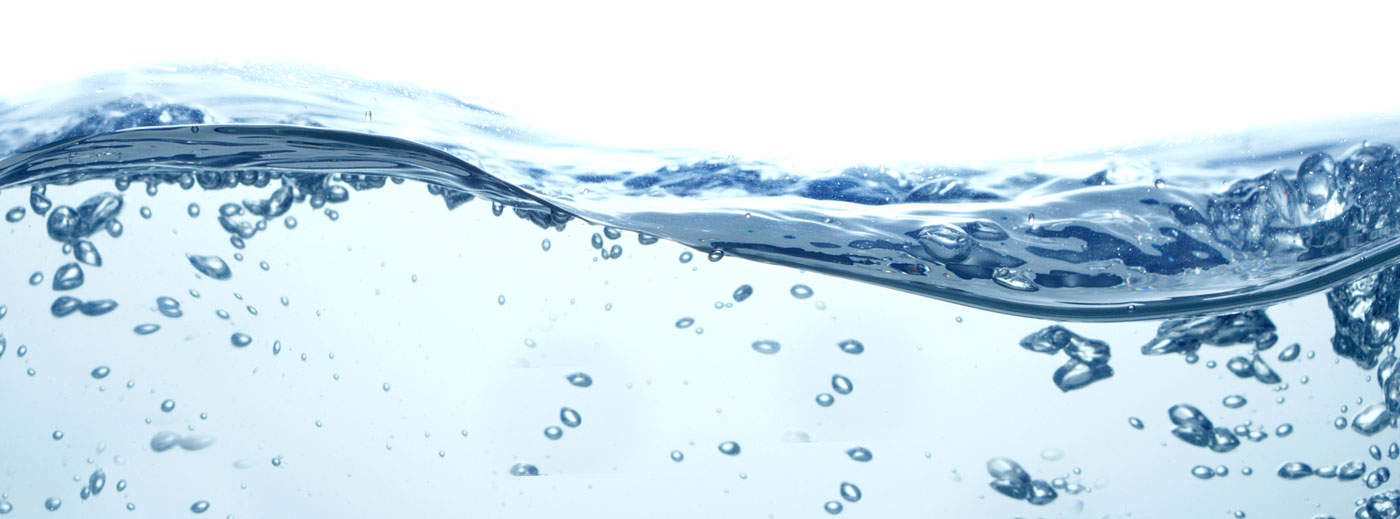
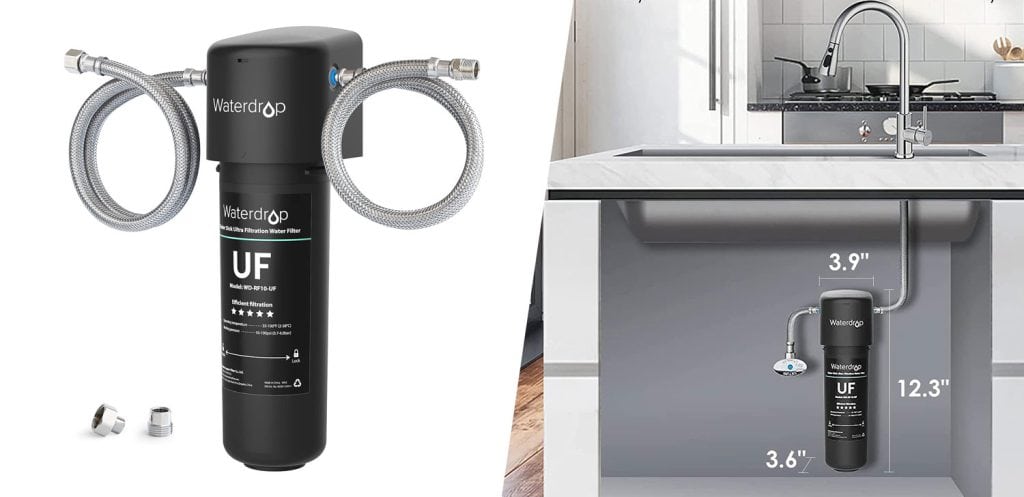
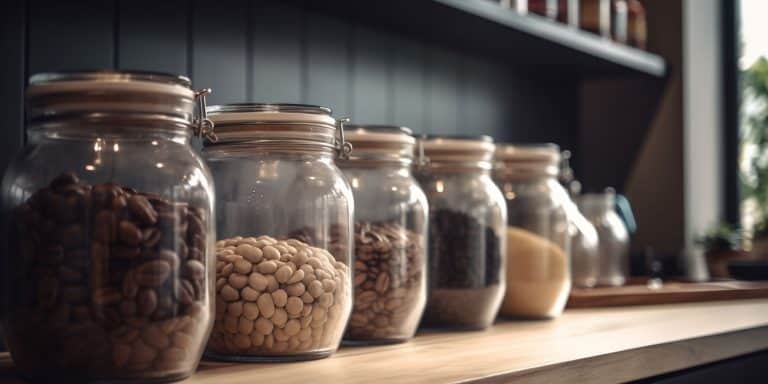
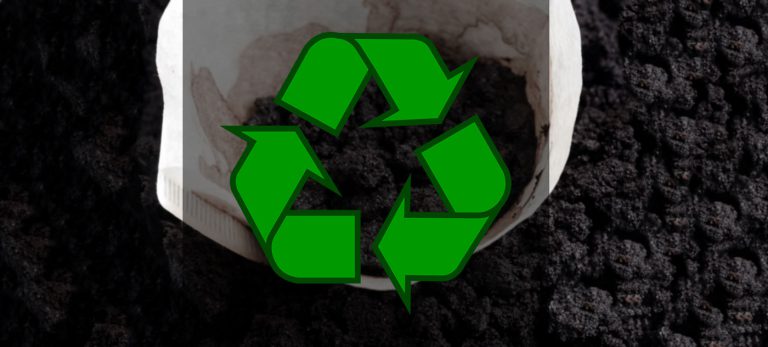
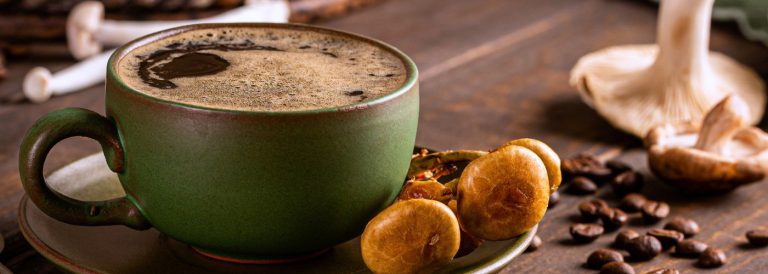
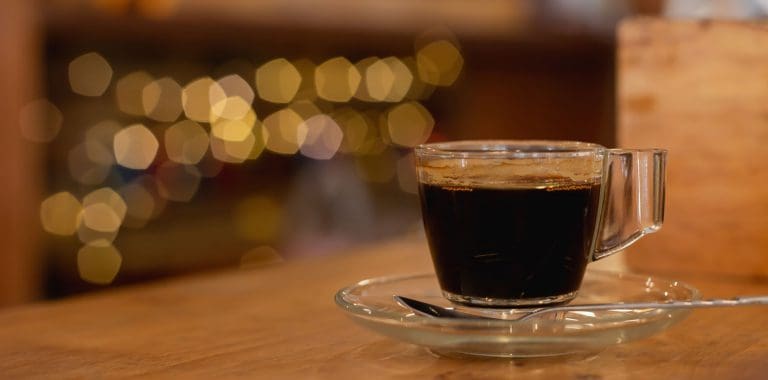
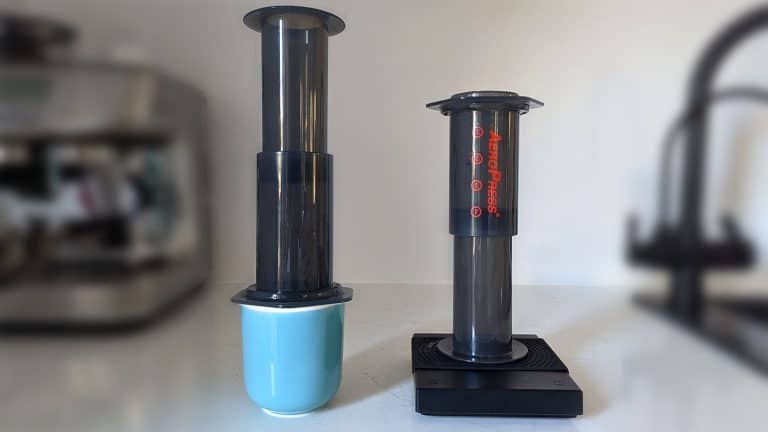
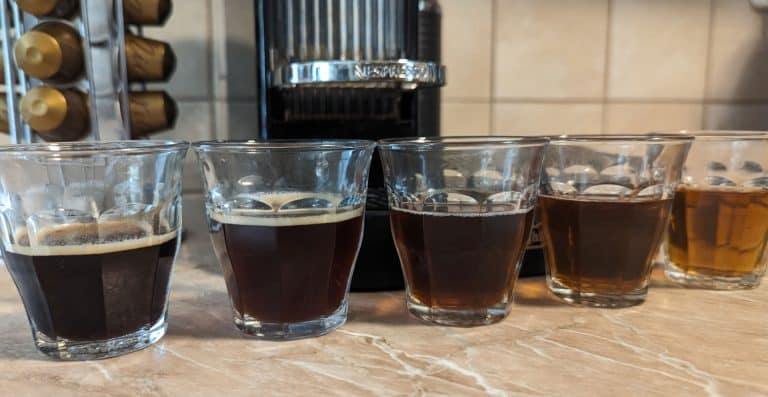
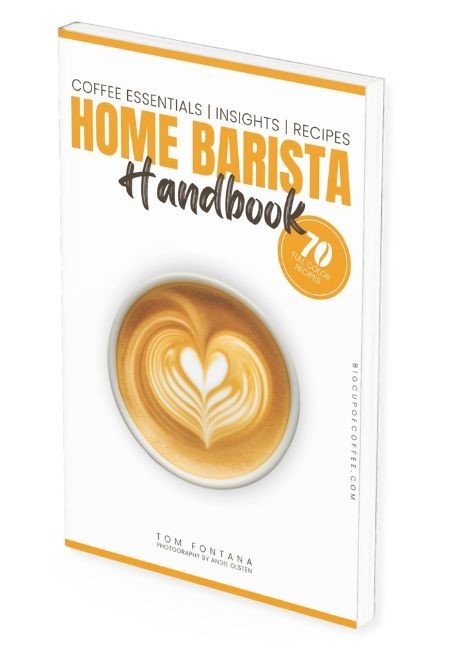
I remember an old barista telling me once that water is as important as the beans. Turns out, they were on to something 😉
Speaking as a chemist and a coffee enthusiast, I have to commend Tom on the accuracy of his explanations regarding TDS and pH levels. The right water really can enhance or detract from the final cup. However, I’d add that seasonal changes can affect tap water composition, which in turn could influence your coffee’s flavor—even if you’re using a filtration system. You might consider experimenting with your water throughout the year for consistently optimal results.
I’ve always taken my coffee brewing seriously, but I never gave much thought to the water I was using—chalk up one to ignorance, I guess. Thanks to Tom’s deep dive, I now see where I’ve been going wrong. Since switching to soft filtered water as suggested, my morning cup has improved dramatically. I did a side by side comparison to see the difference, and it is massive, I wouldn’t have thought. THe tapwater one tasted much more bitter, I guess due to the minerals/chemicals that are not filtered out. A heartfelt thanks for shining a light on this overlooked aspect.
Yes, this is important, but overlooked by many. Water is water right? Not quite…
Great article, Tom, didn’t realize how much TDS and PH balance matter until now. Tried adjusting my water according to your guidelines and what a difference. Who knew coffee could taste this good with just a change in water?